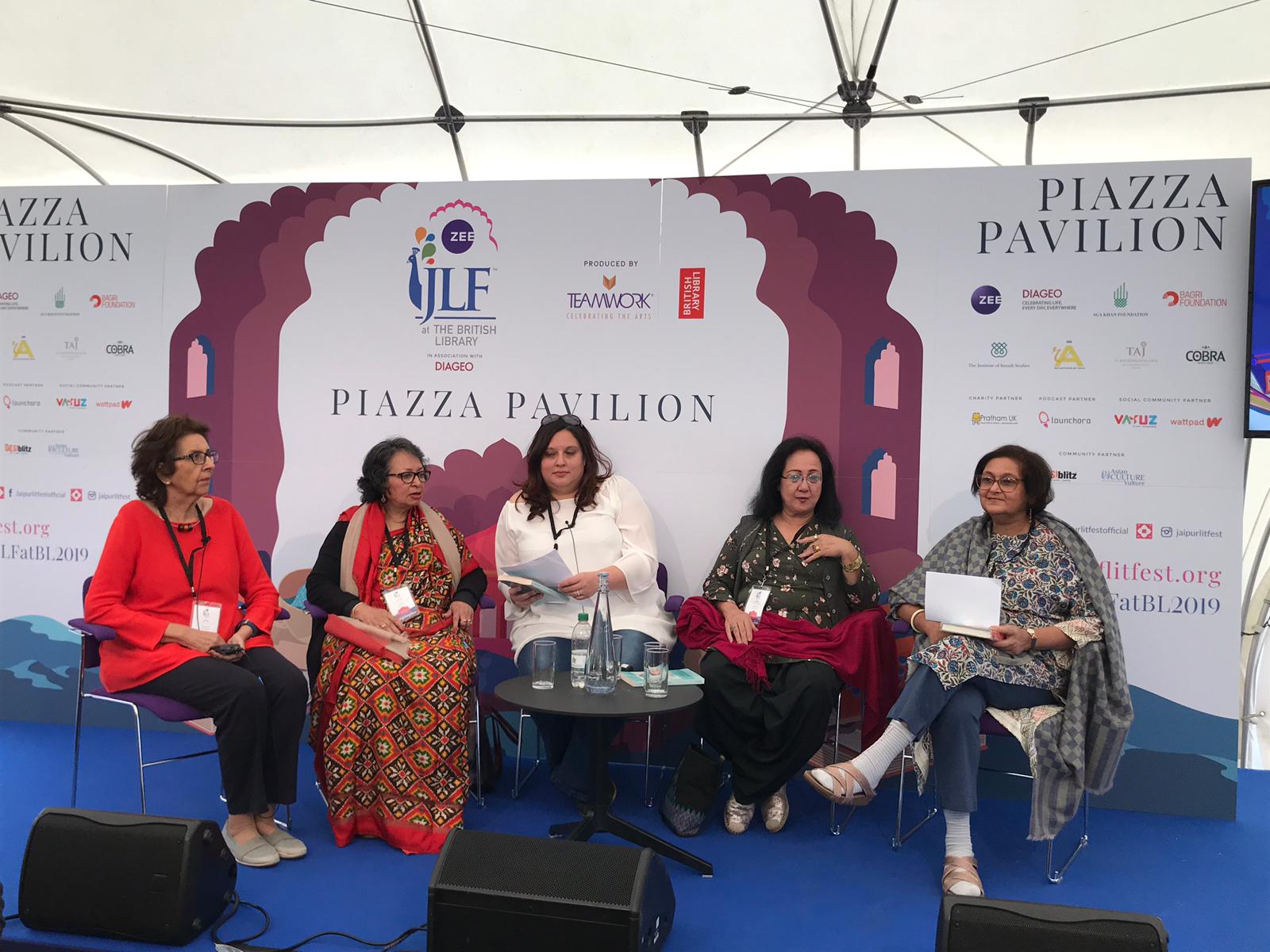


The Begum By Neemah Ahamed
Session Speakers: Deepa Agarwal, Namita Gokhale, Tahmina Aziz Ayub and Muneeza Shamsie in conversation with Maha Khan Philips
13 June 2019 marked 29 years of the passing of Begum Ra’ana Liaqat Ali Khan. It was therefore very fitting for ZEE JLF to pay tribute to this remarkable and inspiring woman.
The members of the panel gave the audience an inspiring account of the Begum’s life and legacy. The book The Begum is a cross cultural cross border collaboration between an Indian and a Pakistani writer who give their own accounts of the First Lady and the ‘Mother of Pakistan’. Both authors felt compelled to tell her story for their own reasons; Tahmina Aziz Ayub said that she ‘owed it to her country’. Deepa Aggarwal said their families had been close and that Begum Ra’ana had been a ‘legendary figure’ for her. Deepa and Tahmina met by chance at a festival and decided to write a tribute to Ra’ana. The book was launched at the Jaipur Literature Festival 2019, with both Pakistani and Indian editions.
Begum Ra’ana Khan had touched lives of all the women on the panel and it was moving to hear their anecdotes, which were all the more poignant because of their admiration of her resilience, strength and determination to promote the needs and rights of women and children. Rather than delving into an analysis of the book itself, the discussion revolved around the many roles Ra’ana played in her life. She was an activist, a feminist, a humanitarian, an academic, a diplomat and philanthropist and mother. The image portrayed of her reminded me of Virginia Woolf, who was also a feminist and advocated for women’s rights at a time when they were not recognised. Similarly, Begum Ra’ana Liaqat Ali Khan was at the forefront of the women’s movement and hosted the first Muslim Women’s Summit in Pakistan.
The session ended with the panel being asked what legacy Ra’ana left behind. According to Muneeza Shamsie, ‘what we (as women) do, is owed to her, even if we are not aware of it.’ What underpinned the discussion and was summed up by Deepa Aggarwal, was the role she played in encouraging women to ‘do something with (their) lives’, to carve out a space for themselves outside their role in their families. She was keen for women to be educated and for them to use it to gain economic independence. Tahmina Aziz Ayub emphasised the key role she played in the implementation of the ordinance, which marked the end of the triple talaq law in Pakistan and in ensuring women had rights after divorce

Leave a comment